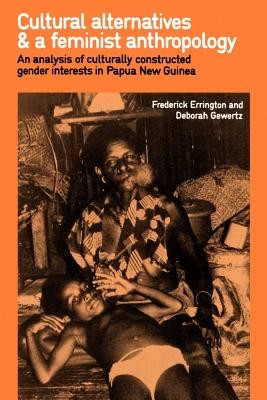
- We will send in 10–14 business days.
- Author: Frederick Errington
- Publisher: Cambridge University Press
- ISBN-10: 0521375916
- ISBN-13: 9780521375917
- Format: 15.2 x 22.7 x 1.5 cm, softcover
- Language: English
- SAVE -10% with code: EXTRA
Cultural Alternatives and a Feminist Anthropology (e-book) (used book) | bookbook.eu
Reviews
Description
The Chambri of Papua New Guinea are well known as being the "Tchambuli" of Margaret Mead's influential work, Sex and Temperament, in which she described them as people among whom, in contrast to Western society, women dominated over men. In this book, the authors analyze Mead's data and present original material to reveal that Mead misinterpreted the Chambri situation. In fact, Chambri women neither dominate men, nor vice versa. They use this reformulated interpretation to discuss the relevance of the Chambri case for the understanding of gender relations in Western society today, showing that male dominance is not inevitable. At the same time, they use their knowledge of cultural alternatives to clarify Western feminist objectives.
EXTRA 10 % discount with code: EXTRA
The promotion ends in 16d.23:22:40
The discount code is valid when purchasing from 10 €. Discounts do not stack.
- Author: Frederick Errington
- Publisher: Cambridge University Press
- ISBN-10: 0521375916
- ISBN-13: 9780521375917
- Format: 15.2 x 22.7 x 1.5 cm, softcover
- Language: English English
The Chambri of Papua New Guinea are well known as being the "Tchambuli" of Margaret Mead's influential work, Sex and Temperament, in which she described them as people among whom, in contrast to Western society, women dominated over men. In this book, the authors analyze Mead's data and present original material to reveal that Mead misinterpreted the Chambri situation. In fact, Chambri women neither dominate men, nor vice versa. They use this reformulated interpretation to discuss the relevance of the Chambri case for the understanding of gender relations in Western society today, showing that male dominance is not inevitable. At the same time, they use their knowledge of cultural alternatives to clarify Western feminist objectives.


Reviews